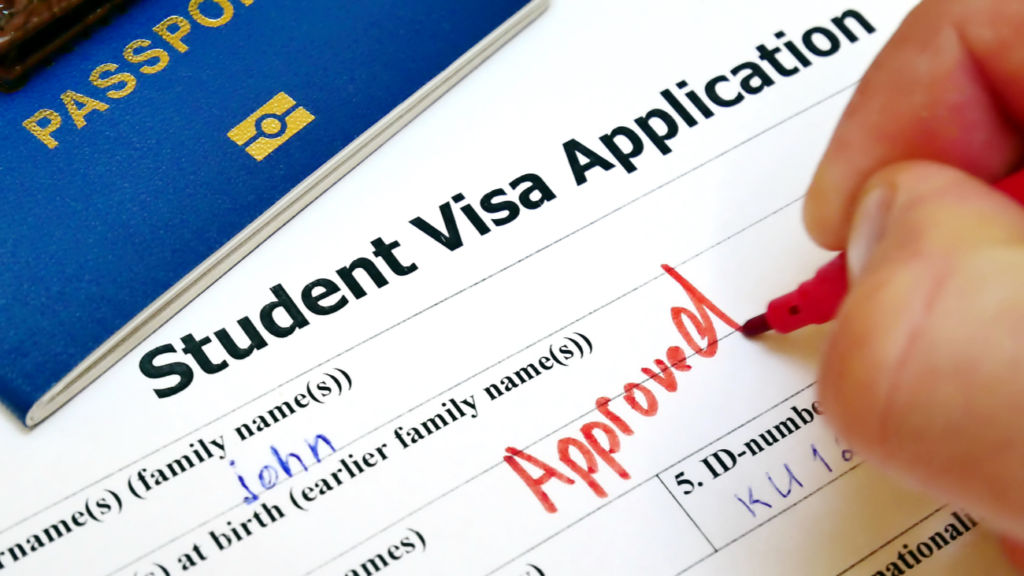
A Canadian Study Permit is required by all international students wishing to study at a Designated Learning Institution (DLI) in Canada. The permit will be issued at the discretion of Immigration, Refugees, and Citizenship Canada (IRCC). Application for a permit should be made once a Letter of Acceptance has been received.
The study permit allows the student to study in Canada for the time of the study program, and also admits a spouse or common-law partner – who may be able to obtain an open work permit to work for any Canadian employer – and minor children who are entitled to attend a Canadian school.
If the course is for a duration of under 6 months a study permit is not required.
How to Get a Study Permit
Once a Letter of Acceptance has been received the student should begin the application process as it can take several months to complete.
To be eligible the student must meet the following criteria:
- Obtain a Letter of Acceptance from a DLI in Canada, or a Quebec Acceptance Certificate for students wishing to study in Montreal and Quebec.
- Have sufficient funds or financial support to pay for the tuition fees and living in Canada.
- Have a clean prior record; individuals who have a criminal record that deems them to be a risk to security may be refused.
- A medical examination may be required to determine the student is in good health.
- The immigration officer must be satisfied that the student will leave Canada when the study permit has run its course.
They will also be required to provide a passport and one for any family members, a further two passport photos of each, a photocopy of marriage or other certificates, and any further documentation required by the immigration services in an application for a visa.
Financial Support
Applicants for the Canadian Study Permit must prove they have sufficient financial support to pay for the first year of study and support themselves and any family while in Canada. This can be in the form of any of the following:
- Canadian bank account statements in the applicant’s name
- Guaranteed Investment Certificate (GIC) from a participating financial institution
- A student or educational loan from a financial institution
- The applicant’s bank statements from the past four months
- A bank draft in convertible currency
- Proof of payment of tuition and accommodation fees
- A letter from the person or institution providing you with money
- Proof of a scholarship or funding paid from within Canada
- Letters from family or friends proving financial support.
The following is a guide to the among, in Canadian dollars, required in different situations in all provinces except Quebec:
A single student requires $10,000 per 12 months plus tuition fees. One accompanying adult requires an additional $4,000 per year. For each additional person, an extra $3,000 must be available.
If studying in Quebec, the applicant must prove financial funding over a sliding scale beginning at around $6,500 plus tuition fees for a single person rising to $23,000 for a family of two adults and two children.
Application Approval
Once an application for a Canadian Study Permit has been approved the student will receive:
- A Letter of Introduction to be presented to the immigration officer on arrival in Canada. This will be used to issue the permit.
- An Electronic Travel Authorisation (eTA) if required
- A Temporary Resident Visa (TRV).
Renewal and Change of Study Program or DLI
A student may renew their study permit should the need arise. A student who completes an undergraduate degree and wishes to continue study would require a renewal.
One who wishes to change institutions during their study program does not need to apply for change or renewal but must inform the IRCC of the change involved.
Post-Graduation Options
A student on a study permit has several options following graduation from a DLI. The study permit will expire 90 days following the date of graduation and the student must inform the IRCC of the change in their situation within this period.
Graduates may be able to apply for a Post-Graduation Work Permit (PGWP) which gives them the right to work in Canada for a specific time, and can help should they wish to apply for permanent residence through any of the immigration pathways that are detailed elsewhere on this website.
To remain in Canada legally without applying for a PGWP the student must either apply for visitor status, apply for a further study permit to continue their education at a higher level, or obtain, for example, an employer-specific work permit. If they do not wish to do any of the above the student is now obliged to leave Canada.